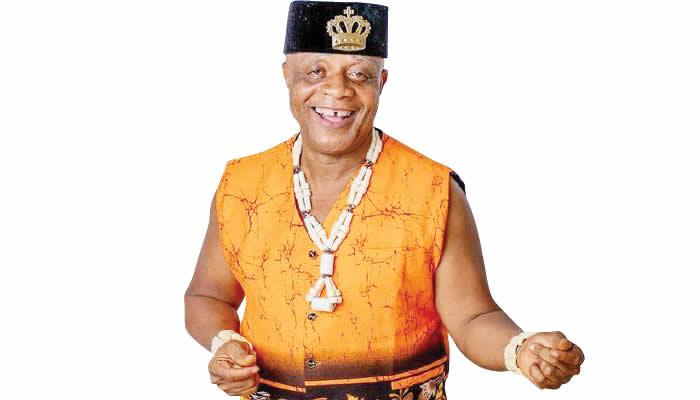Bright Chimezie, affectionately known as “The Duke of African Music,” stands as one of Nigeria’s most iconic highlife legends. Renowned for pioneering the Zigima Sound, a captivating fusion of traditional Igbo highlife, rhythmic dance steps, and socially conscious lyrics, Chimezie’s music continues to echo across generations, transcending borders and time. Born on Nigeria’s Independence Day, October 1, 1960, in Ekeoba village, Umuahia, Abia State, Bright Chimezie carved his name into the annals of African music history with songs that marry humor, culture, and activism.
From his early days immersed in moonlight tales and traditional dances to rising as a national music star in the 1980s, Chimezie’s career reflects a deep commitment to African identity and storytelling. After completing his secondary education in 1976, he joined the Modernized Odumodu Cultural Dance Group. When the group disbanded, his journey took him to Lagos where he joined the Nigerian Customs and Excise Dance Band, fine-tuning the sound that would soon take Nigeria by storm.
By 1984, Bright Chimezie launched his own band and created the Zigima genre, an acronym inspired by the Igbo phrase “o zi gi ma,” meaning “the message you already know.” With the release of Respect Africa, Zigima Sound exploded onto the scene, offering a fresh, danceable, and lyrically rich alternative to contemporary music trends. His groundbreaking songs, including Lekwe Uwa M and You Can Never Hurry the Sunrise, addressed deep-rooted issues like colonialism, cultural erosion, and social inequality, wrapped in infectious melodies and humorous delivery.
Read also:
- Ghanaian music legend, founder Afro-rock band Osibisa is dead
- Davido at 32: celebration of music, milestones, global influence
- Gospel Legend Panam Percy Paul reveals why he rejected £24 Million to remove ‘Jesus’ from his Music
Chimezie’s influence only deepened with time. Tracks like Greetings in Africa emphasized unity and respect in African culture, mixing Igbo, Yoruba, and Hausa greetings to create a continental anthem. The song’s vibrant energy and cultural pride continue to resonate on platforms like YouTube and Shazam, where listeners describe it as “timeless” and “revolutionary.” Because of English, another standout hit, hilariously tackles the confusion caused by colonial language imposition. Its cultural relevance was recently revived when global Afrobeat superstar Davido credited it as inspiration for his 2025 track With You featuring Omah Lay.
Another fan favorite, Iheoma Si Gi Na Obi, remains a spiritual journey for many, blending Zigima’s sonic trademarks with meditative storytelling. The 18-minute track has amassed hundreds of thousands of views on YouTube, with comments from across the globe, including a South American fan who reminisced about listening to it as a child. Its emotional pull is a testament to Chimezie’s power to unite Africans and the diaspora through sound.
Bright Chimezie’s impact is not limited to music charts. He has performed globally in cities like London, Vienna, and São Paulo, and even graced the OPEC Cultural Festival in Caracas, Venezuela. One of his most defining moments came in 1990 when he performed for Nelson Mandela in Nigeria. His embrace by Mandela and Winnie marked a symbolic acknowledgment of Chimezie’s role in Africa’s cultural renaissance.
Honors have followed him everywhere. From being named “Duke of African Music” by a traditional ruler in Oyo State to receiving accolades from the University of Nigeria, Nsukka, and the Nigerian Union of Journalists, Chimezie’s contributions have been recognized across sectors. He also made waves in Nollywood with roles in films like Deadly Proposal and Abuja Boys, showing his range as a cultural ambassador.
Off-stage, Chimezie, also known as Okoro Junior, lives a life rooted in family and community. Married to Chinyere Chimezie, he is the proud father of five children. His values, reflected in songs that advocate respect, love, and unity, mirror the ideals he lives by. In 2025, at age 64, he remains a cultural force. A recent visit from fellow artist J. Martins reignited discussions about preserving African musical heritage, further solidifying Chimezie’s standing as a guardian of tradition.
As fans continue to dance to Zigima Sound and discover the deeper meanings in his lyrics, Bright Chimezie’s influence only grows stronger. He is more than a musician, he’s a movement, a message, and a maestro whose golden voice continues to echo in the hearts of millions. From Greetings in Africa to Because of English, his songs remain evergreen, his rhythm unstoppable, and his legacy untouchable.
Bright Chimezie is not just a legend of African highlife—he is its heartbeat.






